A Jeep Cherokee engine getting hot and not starting may be due to several issues.
It could be a fuel-related problem, due to a bad battery as indicated by difficulty starting and stalling.
Inspect the fuel system, including the fuel pump, lines, and filter for any clogs or leaks. Additionally, clean the throttle body and idle air control valve.
For the overheating issue, ensure the cooling system is working correctly. Replace the thermostat if it was stuck open.
Check for proper coolant levels, and consider flushing the cooling system.
Don’t let a hot engine leave you stranded; read on to find out how to tackle this issue head-on.
Jeep Cherokee Engine Temperature Hot Won’t Start: Common Causes and Solutions
| Issue | Solutions |
|---|---|
| Starter Problem | Replace starter, consult mechanic |
| Battery Issues | Jump start, battery replacement |
| Fuel System | Inspect, clean, replace components |
| Faulty Spark Plug | Test, replace spark plugs |
| Faulty Crankshaft Position Sensor | Diagnostic scan, inspection, replace |
| Low Compression | Compression test, repair or replace |
In this section, we’ll explore these typical culprits and provide insights into troubleshooting and resolving these issues effectively.
Starter Problem
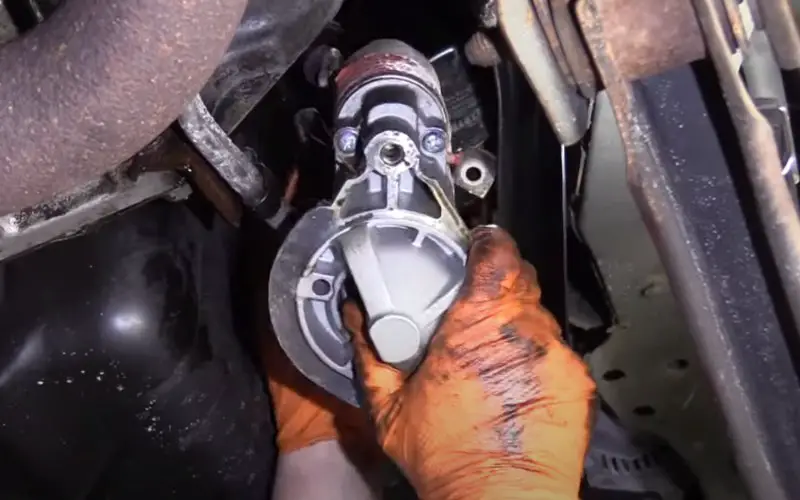
When your Jeep Cherokee won’t start in hot weather, the starter is often to blame. You’ll hear a clicking sound, but the engine won’t crank.
This happens because the starter is close to the engine. After a long drive, both the engine and starter get hot. In hot conditions, the starter takes a long time to cool down. A faulty starter blocks the electrical flow needed to start the engine. As a result, your Jeep won’t start and will only make clicking sounds.
Solution:
- Replace the old starter with a new one.
- If you prefer quick and hassle-free service, consult a Jeep mechanic.
- For a Jeep Cherokee Starter Replacement, expect to spend approximately $446 to $491. Labor usually costs around $100 to $126, and the parts range from $346 to $365. Prices can vary based on your location and the specifics of your vehicle.
DIY Jeep Starter Replacement Guide
Replacing a Jeep starter is easier than you think. Even if you’re not a pro, you can do it. Here’s how:
Step 1: Safety First
- Set the parking brake.
- Choke the wheels to stop the Jeep from rolling.
- Disconnect the battery to avoid electric shock.
Step 2: Locate and Remove the Starter
- Find the starter on the driver’s side of the engine.
- A heat shield may cover it.
- Use a wrench to remove the bolt.
- Pull out the positive and ground connections.
- Slide out the starter.
Step 3: Install the New Starter
- Place the new starter at the mounting point.
- Hand-tighten the top and bottom bolts.
- Connect the positive wire to the solenoid at the top.
- Connect the ground wire to the bottom bolt.
- Tighten the bolts with a socket wrench. Don’t over-tighten.
Step 4: Test the New Starter
- Reconnect the battery.
- Start your Jeep and take a test drive.
- Make sure everything is working well.
Your Jeep should now start without any issues, even in hot weather.
Battery Issues
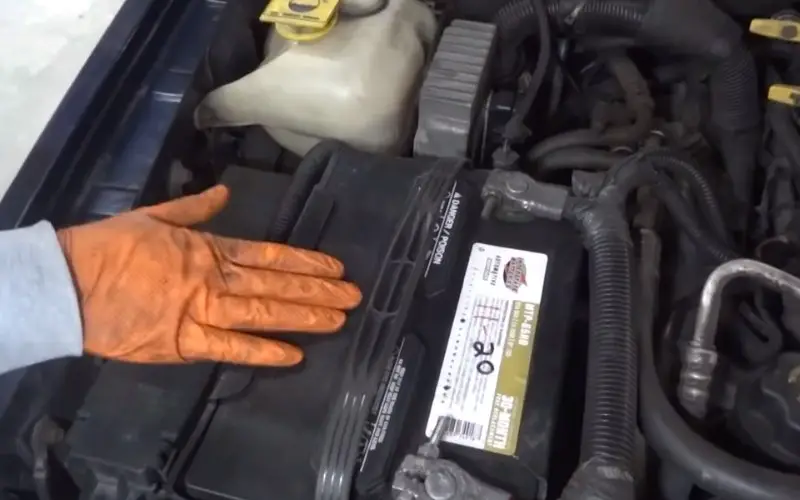
Hot weather can be tough on your Jeep Cherokee’s battery. High temperatures can cause the battery fluid to evaporate.
This leads to corrosion on terminals and connections. When this happens, the electrical current can’t flow well. Your Jeep may not start or may only make clicking sounds.
Problems:
- Dead Battery: A hot engine might not start due to a drained or dead battery, especially if the vehicle has been experiencing issues with starting in various weather conditions.
- Heat-Related Battery Problems: High temperatures can negatively impact battery performance, causing it to lose power or even fail. Over time, extreme heat can lead to battery degradation.
Solutions:
- Jump Start: If your battery is dead, jump-start your Jeep using jumper cables and another vehicle with a working battery.
- Battery Replacement: Consider replacing your battery if it’s old or shows signs of damage. Opt for a high-quality battery that can withstand temperature variations.
- Regular Maintenance: Maintain your battery by checking the connections for corrosion and ensuring they are tight. Cleaning the battery terminals can prevent starting issues.
- Parking in Shade: Whenever possible, park your Jeep Cherokee in the shade to minimize exposure to extreme heat, which can prolong battery life.
Addressing battery problems promptly can prevent engine temperature-related starting issues and keep your Jeep running smoothly.
Fuel System
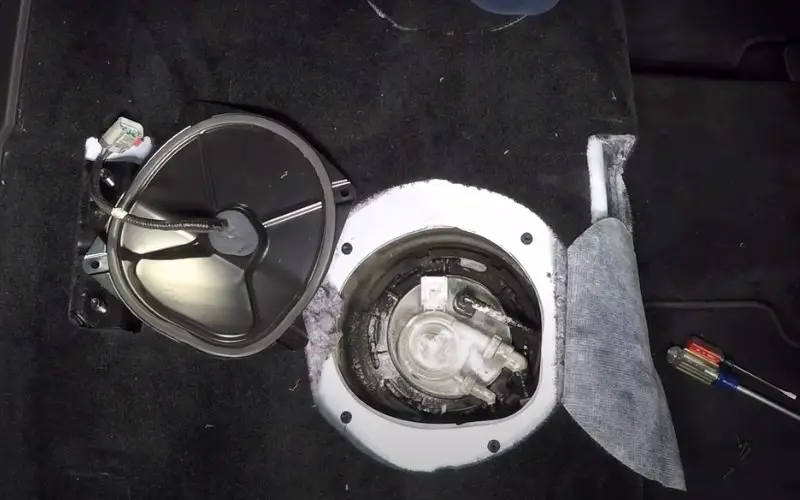
High temperatures can cause fuel to evaporate faster. This can lead to pressure build-up in the fuel tank.
When this happens, the fuel pump and injectors may struggle. Your Jeep might not start or may stall after starting.
Problems:
- Fuel Delivery Issues: If your fuel pump or fuel lines are clogged or leaking, it can disrupt the flow of fuel to the engine, making it difficult to start, especially in hot conditions.
- Dirty Fuel Filter: A clogged fuel filter can restrict the passage of fuel to the engine, leading to starting problems.
- Fuel Pressure Problems: Insufficient fuel pressure due to a malfunctioning fuel pressure regulator can result in a hot engine not starting.
Solutions:
- Fuel System Inspection: Check for clogs or leaks in the fuel lines and ensure that the fuel pump is functioning correctly.
- Fuel Filter Replacement: Replace the fuel filter if it’s clogged or overdue for a change.
- Throttle Body and Idle Air Control Valve Cleaning: Cleaning these components can improve the air-fuel mixture, aiding in starting.
- Fuel Pressure Test: Conduct a fuel pressure test to determine if the system is providing the required pressure.
- Fuel Pump Replacement: If your fuel pump is faulty, consider replacing it to ensure adequate fuel delivery.
- Routine Maintenance: Regularly inspect and clean your fuel system components to prevent issues.
Faulty Spark Plug
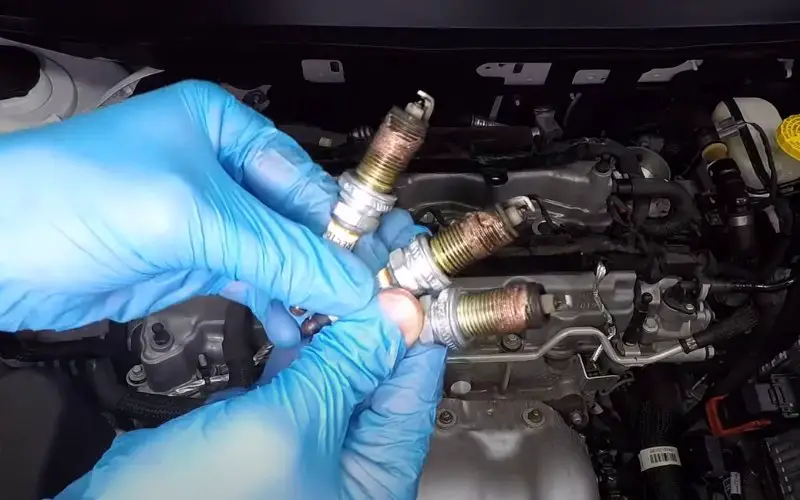
A faulty spark plug can be a hidden culprit when your Jeep Cherokee won’t start in hot weather. Spark plugs ignite the fuel in the engine.
When they fail, the engine can’t start. Heat can make this worse. A faulty spark plug may work when it’s cool but fail in the heat.
Problems:
- Poor Ignition: A damaged or worn-out spark plug can result in poor ignition, especially when the engine is hot. This leads to misfiring or a complete failure to start.
- Reduced Fuel Efficiency: Faulty spark plugs can cause incomplete combustion, resulting in decreased fuel efficiency and engine performance.
- Increased Emissions: When spark plugs don’t function correctly, it can lead to increased emissions, potentially causing your vehicle to fail emissions tests.
Solutions:
- Use a spark plug tester to check for a strong spark. Replace if weak or inconsistent.
- Replacement: Replace damaged or worn spark plugs with new, high-quality ones recommended for your Jeep Cherokee.
- Regular Maintenance: Adhere to the manufacturer’s recommended spark plug replacement schedule to ensure optimal performance.
- Proper Gapping: Ensure that the spark plugs are correctly gapped to the manufacturer’s specifications.
- Ignition System Check: Consider checking the entire ignition system, including the ignition coils and wires, for any issues that may affect spark plug performance.
Faulty Crankshaft Position Sensor
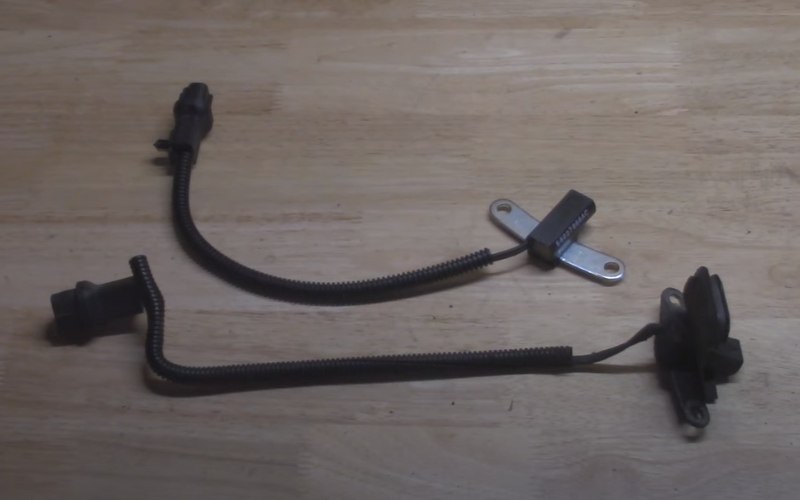
A faulty crankshaft position sensor can be a major issue in hot weather. This sensor tells the engine when to fire the spark plugs.
When it fails, the engine gets confused. It may not start or may stall after starting. Hot weather can make this sensor more likely to fail.
Problems:
- Loss of Timing Information: The crankshaft position sensor plays a crucial role in providing timing information to the engine’s computer. A faulty sensor can disrupt this process, resulting in a failure to start.
- Misfiring: When the sensor malfunctions, it can lead to misfiring or erratic engine behavior, particularly in hot conditions.
- Stalling: Your Jeep Cherokee may stall unexpectedly when the crankshaft position sensor fails, making it challenging to restart.
Solutions:
- Diagnostic Scan: Use an OBD-II scanner to check for sensor-related error codes.
- Sensor Inspection: Physically inspect the sensor for damage or loose connections.
- Replacement: If the sensor is faulty, replace it with a new one compatible with your Jeep Cherokee model.
- Proper Installation: Ensure the new sensor is correctly installed and securely connected.
- Clearing Error Codes: After replacement, clear any error codes and test the engine to ensure proper starting and operation.
Low Compression
Low compression can be a serious issue when your Jeep Cherokee won’t start in hot weather. Compression is vital for the air-fuel mixture in the engine.
When it’s low, the engine can’t create enough power to start. Hot weather can make existing compression issues worse, leading to a no-start condition.
Solution:
- Perform a compression test to confirm low compression levels.
- Check for leaks in the cylinder head gasket and repair if needed.
- Inspect the piston rings and replace them if they are worn or damaged.
- If the issue persists, consult a mechanic for a more thorough diagnosis.
By addressing low compression issues, you can improve the reliability of your Jeep Cherokee, especially in hot weather conditions.
How To Take Preventive Measures?
Taking preventive steps can save you from the headache of a hot engine that won’t start.
Here’s how to keep your Jeep Cherokee running smoothly, even in the heat:
| Preventive Measures | Steps |
|---|---|
| Regular Maintenance | Stick to a regular maintenance schedule. |
| Change the oil, filters, and fluids as recommended. | |
| Battery Care | Regularly check the battery. Clean the terminals |
| and ensure it’s securely mounted. | |
| Cooling System | Keep an eye on the coolant level. |
| Top it off as needed and consider a coolant flush once a year. | |
| Sensor Checks | Use an OBD-II scanner to monitor sensor health. |
| Replace any sensors showing error codes. | |
| Quality Parts | Always use high-quality replacement parts, from spark plugs to fuel pumps. |
Final Thoughts
It’s crucial to address these issues of Jeep Cherokee promptly to ensure reliable and hassle-free performance, especially in hot weather.
Regular maintenance, quality parts, and preventive measures can significantly reduce the likelihood of encountering such problems, keeping your Jeep running smoothly.
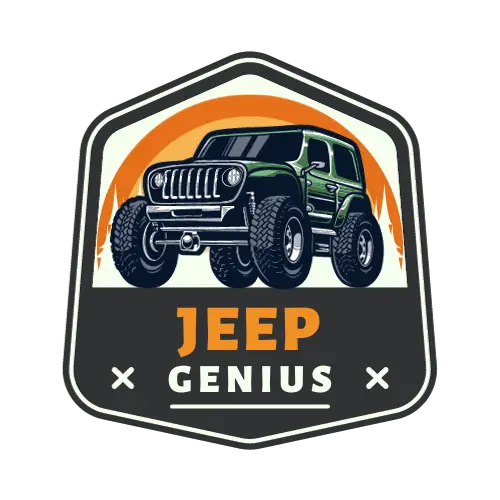
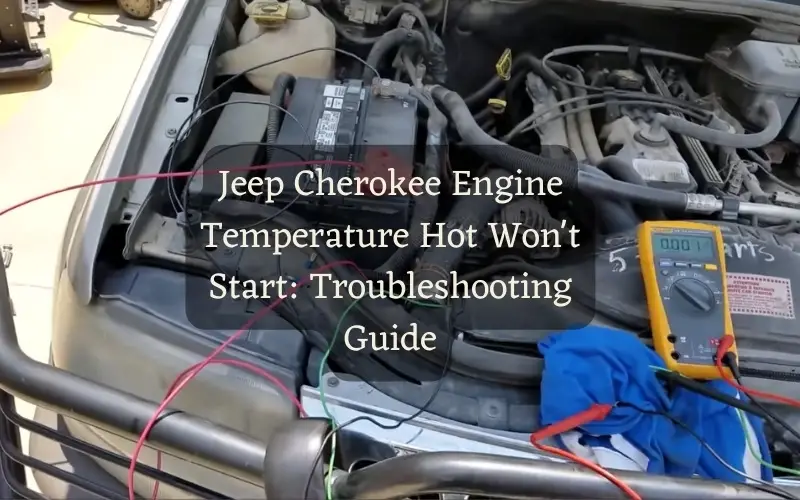
Leave a Reply